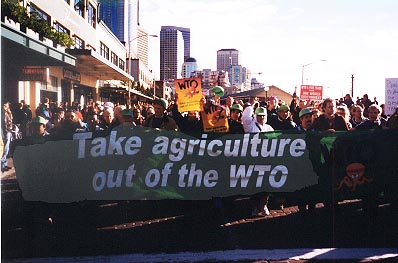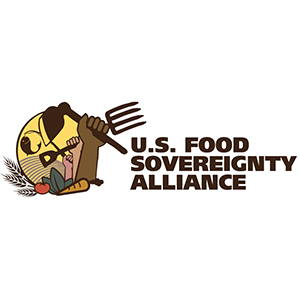Call for funds to directly invest in communities to build out critical infrastructure between local and regional food producers and families in need of healthy food
FOR IMMEDIATE RELEASE: March 20, 2020
Communication Contact:
Jennifer Fahy (Farm Aid), [email protected], (617) 320-9587,
Debbie DePoala (WhyHunger), [email protected], (212) 629-8850
Heidi Anne Rogers (NAMA), [email protected], (615) 900-6504
Siena Chrisman (NFFC), [email protected], phone: (917) 821-9631
Jordan Treakle (NFFC) [email protected], (202) 543-5675
Alison Cohen (WhyHunger) [email protected], (718) 510-4989
Alicia Harvie (Farm Aid), [email protected], (484) 716-9502
Navina Khanna (HEAL), [email protected], (510) 393-4905
Northwest Atlantic Marine Alliance (NAMA), National Family Farm Coalition (NFFC), Farm Aid, WhyHunger, HEAL Food Alliance, and the Institute for Agriculture and Trade Policy (IATP) commended Congress for quick passage of an initial COVID-19 pandemic relief bill and called on legislators to take an additional step to not only address the current crisis but invest in a future that minimizes food insecurity and ensures the continuity of the essential services that farmers, fishermen, ranchers, and related food businesses provide. The organizations–made up of family farmers, ranchers, fishermen, and food workers across rural, urban, and indigenous communities advocating for sustainable agriculture and fisheries, and food security–pointed to many recent innovations in regional farm, ranching, and fishing infrastructure that enable producers to provide healthy food to their local communities, especially those experiencing food insecurity, in the midst of this crisis and into the future by using their existing infrastructure to deliver local and minimally processed food to a growing number of individuals facing food insecurity.
Noreen Springstead, Executive Director of WhyHunger: “As the COVID-19 crisis reshapes life in America, it is essential that we protect everyone’s most basic human right to nutritious food. This crisis has exposed major weaknesses in the current consolidated supply chain, and the need to support community-scale production and distribution. In addition, it demonstrates the stark inequities that leave tens of millions in persistent hunger and poverty, and small-scale producers on the sidelines. Even before the pandemic, 37 million people were struggling to get food on the table for their families, while 4 out of 5 U.S. workers were living paycheck to paycheck. Millions of low-income people face chronic illness and health disparities making them even more susceptible to COVID-19. Lack of access has never been about a yield gap, it is a problem of distribution: Now is the time to more directly connect food producers who are losing income as local markets close to food access organizations who are in need of fresh nutritious food for current patrons and the growing numbers of those who may be facing food insecurity in the near future.”
While the current administration has provided more than $23 billion to food producers for the loss of export markets since 2018, the majority of small and medium-scale farmers, fishers, and ranchers have seen little of this relief. Many family farmers, ranchers, and fishermen have already been struggling through six years of farm prices below average costs of production. For producers reliant on local markets, the closure this week of thousands of school districts, restaurants, and farmers markets across the country has been another blow. NAMA, NFFC, Farm Aid, WhyHunger, HEAL Food Alliance, and IATP are proposing the following set of policies to support these and similar initiatives to ensure food access in communities around the country and economic security for workers across the food chain, now and in the coming uncertain economic times:
IMMEDIATE MEASURES TO SUPPORT ALL PRODUCERS
- Ensure all farmers, ranchers, and fisherpeople are included in any broader stimulus or farm relief package, with specific prioritization of small and mid-sized operations, limited resource producers, and farms operated by farmers of color and tribal nations who are currently not well served by existing crop insurance, revenue programs, and Market Facilitation Program payments.
- The President and the U.S. Secretary of Agriculture should declare a national disaster to unlock existing federal emergency and disaster funding and services for the farm sector.
- Direct USDA to utilize the authorities of the Commodity Credit Corporation Charter Act related to income stabilization to make emergency disaster payments to family-scale farmers/ranchers/fishermen and independent agriculture and seafood businesses (that can demonstrate revenue losses attributable to coronavirus emergency measures) to donate and distribute fresh and minimally processed foods, at market rates, directly to individuals, families, food hubs, and schools
- Provide unemployment benefits to farm, food and fish workers through small- and medium-scale businesses that can demonstrate inability to pay their workers because of coronavirus emergency measures.
- Adapt all USDA credit, financing, funding and other program implementation requirements to meet the evolving demands of farmers, ranchers, and fishermen through measures such as extending deadlines, waiving cost-share requirements, ensuring effective outreach to producers, or other actions.
CREDIT, LOAN SERVICING, AND DEBT RELIEF FOR FARMERS AND RANCHERS
- Local FSA and NRCS offices should aggressively use every tool available to keep farm families in their homes and on the land under current regulations.
- Increase funding for direct and guaranteed loan programs and implement zero-interest operating loans for all existing family-scale farmers, fishermen, and ranchers, while ensuring that borrower rights for FSA direct loans are extended to all guaranteed borrowers.
- Declare a two year national moratorium on farm foreclosures and require agriculture mediation for all future farm foreclosure proceedings after that point.
- Forgive all federal direct and guaranteed loan debt and suspend debt payments (both principal and interest) for two years for all producers.
- Direct USDA to utilize the authorities of the Commodity Credit Corporation Charter Act to shift $50 million in funding to ag mediation programs, as it did with trade assistance, including funding to prepare farmer borrowers for mediation.
BOLSTER EMERGENCY AND LOCAL & REGIONAL FOOD SYSTEMS POISED TO FEED COMMUNITIES
- Exempt farmers’ markets from definitions of “public places” and categorize them as essential services in order to continue feeding local communities.
- Expand funding for the Fair Food Network’s Double Up Food Bucks and allow program funds to cover direct sales from participating family-scale farms and boats.
- Increase funding for USDA Local Agriculture Marketing Program to strengthen local food system resilience.
- Provide additional funding of at least $100 million for the Food Distribution Program on Indian Reservations (FDPIR) to ensure tribes can adequately respond to food insecurity among their citizens.
- Establish an Emergency Tribal Food Assistance Fund and enhance FDPIR for food, administration, and infrastructure, along with providing administrative flexibility.
- Direct USDA to consider ways to allow dual participation in SNAP and FDPIR simultaneously for all those eligible.
- Support small and very small meat and poultry processors by waiving all USDA inspector overtime costs for this fiscal year for plants with a USDA Grant of Inspection with less than 50 employees.
SYSTEM REFORM FOR AGRICULTURAL RESILIENCE
- Institutionalize strategic public national food reserves for future crises.
- Pass systemic fair pricing legislation, coupled with supply management, for food producers to strengthen rural economic resilience.
- Support fair agricultural contracts, farmer/grower/rancher rights, and competitive markets by reissuing and finalizing the USDA Farmer Fair Practice Rules.
- Increase transparency in the food system and allow eaters to support American farmers, ranchers, and fishermen by reinstating and expanding Country of Origin Labeling (COOL).
- Prohibit crisis profiteering and corporate consolidation by enacting an immediate moratorium on acquisitions and mergers in the food and agriculture sector and enforce antitrust laws.
Shannon Eldredge, NAMA board president, said, “We need a disaster relief package that addresses the work local and regional food producers are doing during this crisis both to stay afloat and to secure food access for those in need. We ask Congress to include funding for fishermen that are donating seafood in HR 6201 that was just passed to mitigate the loss of product that would have otherwise occurred if we were restricted to selling to institutions like schools and universities or direct market channels. Local and regional seafood producers and seafood donation should have been considered by Congress in HR 6201, so we’re asking Congress not to forget about us and what we can offer in this time of crisis. We are poised to take these losses and turn them into gains for those facing food insecurity.”
Jim Goodman, Wisconsin dairy farmer and NFFC board president, said, “In this uncertain time, Congress can provide some certainty to food producers, the families they feed, and rural communities across the country for the days to come. To recover from a five-year farm crisis and cope with the coming market loss from the coronavirus, farmers need fair prices and farm and food workers need living wages, sick leave, and fair immigration policies. To shore up our communities for the future, we must invest in small producers and short supply chains.”
Jared Auerbach, Chief Executive Officer of Red’s Best, said, “We don’t have to rebuild the food system to look exactly like it did before it fell apart this week. We have a unique opportunity to recreate the world the way it should be, not necessarily the way it was. We have the people in place to create a sustainable, health conscious, food secure world for all of our people, but the system will need immediate liquidity to get rolling again.” Red’s Best represents the kind of food businesses and producers who are ready and willing to begin a course of action that would feed communities at no cost to consumers, but this plan will require assistance from the government.
Alicia Harvie, Farm Aid’s Advocacy and Farmer Services Director, stated, “Family farmers and ranchers provide essential services we all need to navigate this disaster caused by COVID19. We call on Congress to provide immediate and bold action that ensures farmers and ranchers can feed their communities. Many family farmers, ranchers, and fishermen have already been struggling through six years of farm prices below their cost of production. Now, more than ever, we cannot afford to lose them from the land. Strengthening our farmers and ranchers is an investment in the essential infrastructure we need now, and an investment in the resiliency we need to face future challenges.”
###
Fore even more specific policy proposals continue reading below:
COVID-19 STIMULUS PACKAGE FOR THE FOOD SYSTEM
Through no fault of their own, farmers, ranchers, fishermen and all food producers are facing a crisis unlike any they have ever seen, encountering new threats to their production and markets sparked by COVID-19 while they endure a multi-year slump in prices for their goods, volatile trade disputes, frequent natural disasters, and climate disruption. What’s clear is that no farmer should lose their farm and no fisherman should lose their boat because of the crisis sparked by COVID-19, and farm, fish and food workers should likewise not lose their livelihoods.
In stark contrast to the Administration’s approach to a “trade bailout” through the Market Facilitation Program, Congress and the federal government need to act decisively to ensure that all farmers, ranchers, and fishermen are included in any broader stimulus package related to COVID-19, particularly small and midsized operations, limited resource producers, farms operated by farmers of color, and tribal nations who have often fallen through the cracks of federal farm policy. This will require a multi-faceted approach that invests in the innovative potential of food producers, ensures fair livelihoods for all who have a hand in bringing food to American families, offers meaningful debt relief and appropriate credit to meet the demands of the moment, and ensures a more resilient food system for producers, workers and consumers alike.
Time is of the essence.
We call on the President, the U.S. Secretary of Agriculture, and the Secretary of Commerce to declare a national disaster in both the agriculture and seafood sectors to unlock existing federal emergency and disaster funding and services, and enable Congress to appropriate further relief funds for the farm and seafood sector.1 In addition, federal agencies must aggressively use every tool available to keep families in their homes, on the land, and on the water.
Congress must do the following in any stimulus package enacted to address the COVID-19 crisis:
ENSURE A FAIR LIVELIHOOD FOR FARMERS, RANCHERS, FISHERMEN AND ALL FARM, FISH AND FOOD WORKERS.
● Establish an emergency payment program for farmers, ranchers, fishermen, and food producers who can demonstrate revenue losses due to COVID-19 emergency measures, including producers who are sourcing local and regional markets and sourcing directly to individuals, schools, local institutions, and food hubs.
● Forgive all federal direct and guaranteed loan debt and suspend debt payments (both principal and interest) for two years for all producers.
● Suspend vessel loan payments (both principal and interest) to private lenders for two years.
● Increase funding for direct and guaranteed loans, maintaining existing loan limits.
● Waive the eligibility restriction for new FSA loans based on past debt write-down or other loss to the agency.
● Waive the prohibition on refinancing of other debt with FSA direct loans.
● Implement zero-interest for all FSA direct loans and utilize the Interest Assist program to buy-down guaranteed loan interest to zero percent.
● Require that all borrower rights provided for FSA direct borrowers be extended to all guaranteed loan borrowers.
● Adapt all USDA and DOC credit, funding and program implementation requirements to meet the evolving needs of food producers through measures such as extending deadlines, waiving cost-share requirements, ensuring effective outreach, or other actions.
● Provide unemployment benefits to farm, food and fish workers through businesses that can demonstrate inability to pay their workers and contractors because of COVID-19 emergency measures.
● Provide emergency funding for businesses that can demonstrate revenue losses to offer paid sick days to farm, fish and food workers who provide essential services during the COVID-19 crisis.
● Establish an immediate moratorium on work permit restrictions for guest workers and migrant workers who have been laid off or terminated.
● Provide access to free COVID-19 testing and medical care to all farm, fish and food workers, regardless of immigration status and size of workplace, including workers on H-2A or migrant worker visas, and eliminate penalties for all workers who become ill for inability to complete a contract due to the illness.
BOLSTER LOCAL & REGIONAL FOOD SYSTEMS POISED TO FEED COMMUNITIES
● Quadruple the budget, loosen barriers to application, and abandon all eligibility and access restrictions to SNAP and Women, Infants and Children (WIC) programs.
● Establish an immediate moratorium on the Public Charge Rule which would disqualify immigrants who receive public assistance from obtaining permanent residency status or U.S. citizenship.
● Exempt farmers’ and seafood markets and local food hubs from definitions of “public places” and categorize them as essential services, eligible for emergency assistance funding for operations and food safety training and materials, to continue feeding local communities.
● Double funding for the Fair Food Network’s Double Up Food Bucks and allow program funds to cover direct sales from participating family-scale farms and boats.
● Increase funding for USDA Local Agriculture Marketing Program (LAMP) by $200,000,000 and temporarily waive cost-share requirements to strengthen local food system resilience.
● Bolster food security for tribal nations by: 1) Providing additional funding of at least $100 million for the Food Distribution Program on Indian Reservations (FDPIR) and enhancing FDPIR for food, administration, and infrastructure, along with providing administrative flexibility; 2) Establishing an Emergency Tribal Food Assistance Fund; and 3) Directing USDA to consider ways to allow dual participation in SNAP and FDPIR simultaneously.
ENACT SYSTEMIC REFORM TO BUILD RESILIENCE FOR ALL FOOD PRODUCERS, WORKERS AND EATERS
● Strengthen rural economic resilience and prevent food shortages by establishing supply management programs, a parity pricing system, and strategic food reserves that ensure producers and workers receive a living wage and consumers have access to high-quality and stable agricultural goods and seafood.
● Prohibit crisis profiteering and corporate consolidation by enacting an immediate moratorium on mergers and acquisitions in the seafood and food & agriculture sectors and enforce antitrust laws.
● Support fair agricultural contracts, producers’ rights, and competitive markets by reissuing and finalizing the USDA Farmer Fair Practice Rules.
● Increase transparency in the food system and allow eaters to support American farmers, ranchers, and fishermen by reinstating and expanding mandatory Country of Origin Labeling (COOL) for meat, dairy, and seafood.







